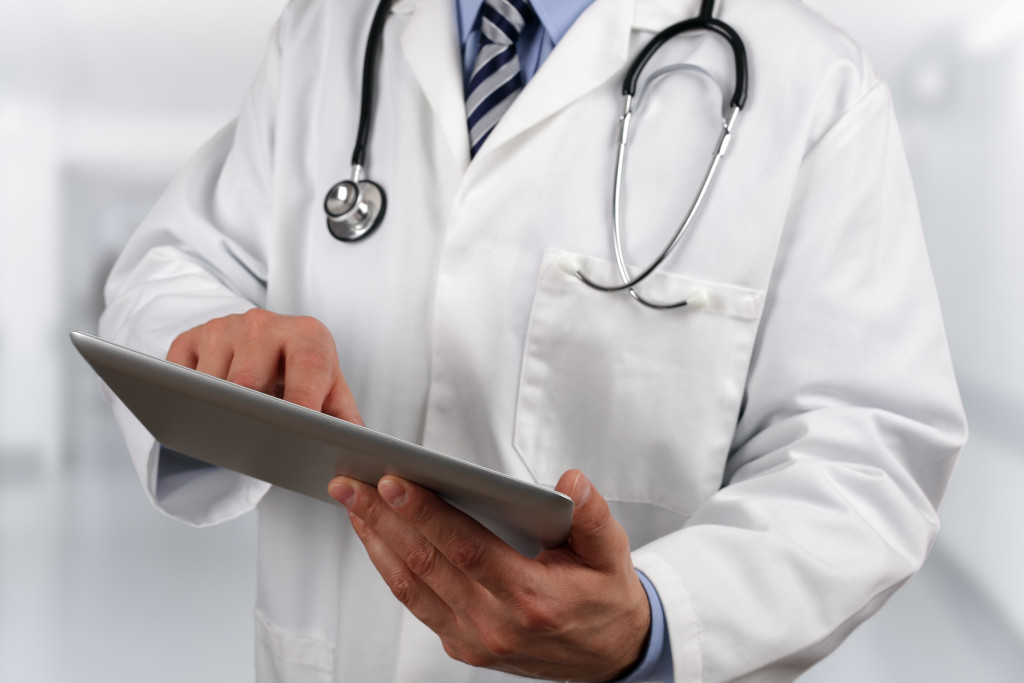It’s important to know when you should and shouldn’t go to a medical professional in order to get the best care possible. Many people are afraid to go to the hospital or the dental clinic to seek help, but there are times when it’s absolutely necessary. If you’re not sure whether or not you need to see a doctor, here are some general guidelines to follow.
1. Fevers
A fever is your body’s way of fighting an infection. Most of the time, it’s nothing to worry about, but fever can sometimes be a sign of a more serious problem. See a doctor if your fever is above 101 degrees Fahrenheit.
2. Breathing troubles
Shortness of breath can be a sign of many different things, from a simple cold to a life-threatening condition like pneumonia. This is not something to take lightly because it could mean the difference between life and death. If you’re having trouble breathing, go to the ER immediately.
3. Serious injuries
Serious injuries should always be evaluated by a medical professional. Delaying treatment could make the injury worse. Some injuries, like a deep cut, may seem minor but could actually be very dangerous if not treated properly. Serious injuries can be caused by many things, from a car accident to a fall. Some of the most common serious injuries are bone fractures, internal bleeding, and head injuries.
4. Chest pain
Chest pain can be a sign of a heart attack, so it’s important to seek medical help right away. Other causes of chest pain can include asthma, heartburn, and pneumonia. Medication, a heart procedure, or surgery may be necessary to treat the underlying cause of the chest pain.
5. Changes in vision

If you suddenly start having trouble seeing or if your vision changes in any way, go to the ER immediately. Vision problems can be a sign of a number of different conditions, including glaucoma, diabetic retinopathy, and a detached retina.
6. Severe pain
Severe pain can be a sign of a number of different conditions, such as a heart attack, appendicitis, or a kidney infection. It’s important to get medical help if you’re experiencing severe pain because it could be a sign of something serious.
7. Swelling
Swelling can be a sign of a number of different conditions, such as an allergic reaction, a blood clot, or a tumor. However, when swelling is accompanied by other serious symptoms, it can be a sign of something more serious. For example, sudden swelling in the face or throat can be a sign of anaphylactic shock. If you’re experiencing swelling, go to the doctor to find out what’s causing it.
8. Unexplained weight loss
Unexplained weight loss can be a sign of many different conditions, such as cancer, diabetes, and hyperthyroidism. If you’ve been losing weight without trying and you don’t know why, go to the doctor to find out what’s going on.
9. Changes in the menstrual cycle
Changes in the menstrual cycle can be a sign of many different conditions, such as Polycystic Ovarian Syndrome (PCOS), endometriosis, and uterine cancer. If you’ve been experiencing changes in your menstrual cycle, go to the doctor to find out what’s going on.
10. Increased thirst and urination
Increased thirst and urination can be a sign of diabetes, dehydration, or a kidney infection. If you’re experiencing these symptoms, go to the doctor to find out what’s causing them.
11. Difficulty speaking or swallowing
Difficulty speaking or swallowing can be a sign of a number of different conditions, such as a stroke, a tumor, or ALS. If you’re experiencing difficulty speaking or swallowing, go to the doctor to find out what’s going on.
12. Pregnancy
Pregnancy is a time when you need to be especially careful about your health. See a doctor as soon as you think you might be pregnant, and make sure to keep all of your appointments. Your life and that of your baby depends on it.
13. Vomiting blood
Vomiting blood can be a sign of many different things, from a simple stomach virus to a life-threatening condition like cirrhosis. If you’re vomiting blood, go to the hospital immediately.
14. Seizures
A seizure is a sign that something is wrong with your brain. It can be a sign of many different conditions, from epilepsy to meningitis. If you’re having a seizure, see a doctor right away.
When you think of medical emergencies, the things that may come to mind are life-threatening situations such as heart attacks or severe chest pain. However, many different symptoms can be a sign of something more serious and should not be ignored. With this list in hand, you’ll know when it’s time to visit your doctor and get checked out. If you’re experiencing any of these symptoms, go to the doctor right away. It’s better to be safe than sorry.


